What's behind China-Taiwan tensions?
Tensions over Taiwan are spiking over a visit by US House of Representatives Speaker Nancy Pelosi - and this has only further strained relations between Washington and Beijing.
At the heart of the divide is that the Chinese government sees Taiwan as a breakaway province that will, eventually, be part of the country.
But many Taiwanese people consider their self-ruled island to be a separate nation - whether or not independence is ever officially declared.
What is the history between China and Taiwan?
The first known settlers in Taiwan were Austronesian tribal people, who are thought to have come from modern day southern China.
The island seems to have first appeared in Chinese records in AD239, when an emperor sent an expeditionary force to explore the area - a fact Beijing uses to back its territorial claim.
After a relatively brief spell as a Dutch colony (1624-1661), Taiwan was administered by China's Qing dynasty from 1683 to 1895.
From the 17th Century, significant numbers of migrants started arriving from China, often fleeing turmoil or hardship. Most were Hoklo Chinese from Fujian (Fukien) province or Hakka Chinese, largely from Guangdong. Their descendants are now by far the largest demographic groups on the island.
In 1895, Japan won the First Sino-Japanese War, and the Qing government had to cede Taiwan to Japan. After World War Two, Japan surrendered and relinquished control of territory it had taken from China. The Republic of China (ROC) - one of the victors in the war - began ruling Taiwan with the consent of its allies, the US and UK.
But in the next few years a civil war broke out in China, and the then-leader Chiang Kai-shek's troops were defeated by Mao Zedong's Communist army.
Chiang, the remnants of his Kuomintang (KMT) government and their supporters - about 1.5m people - fled to Taiwan in 1949.
This group, referred to as Mainland Chinese, dominated Taiwan's politics for many years though they only account for 14% of the population. Chiang established a government in exile in Taiwan which he led for the next 25 years.
Chiang's son, Chiang Ching-kuo, allowed more democratisation after coming to power. He faced resistance from local people resentful of authoritarian rule and was under pressure from a growing democracy movement.
President Lee Teng-hui, known as Taiwan's "father of democracy", led constitutional changes towards, which eventually made way for the election of the island's first non-KMT president, Chen Shui-bian, in 2000.
So who recognises Taiwan?
There is disagreement and confusion about what Taiwan is.
It has its own constitution, democratically-elected leaders, and about 300,000 active troops in its armed forces.
Chiang's ROC government-in-exile at first claimed to represent the whole of China, which it intended to re-occupy. It held China's seat on the United Nations Security Council and was recognised by many Western nations as the only Chinese government.
But by the 1970s some countries began to argue that the Taipei government could no longer be considered a genuine representative of the hundreds of millions of people living in mainland China.
Then in 1971, the UN switched diplomatic recognition to Beijing and the ROC government was forced out. In 1978, China also began opening up its economy. Recognising opportunities for trade and the need to develop relations, the US formally established diplomatic ties with Beijing in 1979.
Since then the number of countries that recognise the ROC government diplomatically has fallen drastically to about 15.
Now, despite having all the characteristic of an independent state and a political system that is distinct from China, Taiwan's legal status remains unclear.
How are relations between Taiwan and China?
Relations started improving in the 1980s as Taiwan relaxed rules on visits to and investment in China. In 1991, it proclaimed that the war with the People's Republic of China was over.
China proposed the so-called "one country, two systems" option, which it said would allow Taiwan significant autonomy if it agreed to come under Beijing's control. This system underpinned Hong Kong's return to China in 1997 and the manner in which it was governed until recently, when Beijing has sought to increase its influence.
Taiwan rejected the offer and Beijing's insisted that Taiwan's ROC government is illegitimate - but unofficial representatives from China and Taiwan still held limited talks.
Then in 2000, Taiwan elected Chen Shui-bian as president, much to Beijing's alarm. Mr Chen and his party, the Democratic Progressive Party (DPP), had openly backed "independence".
A year after Mr Chen was re-elected in 2004, China passed a so-called anti-secession law, stating China's right to use "non-peaceful means" against Taiwan if it tried to "secede" from China.
Mr Chen was succeeded by the KMT's Ma Ying-jeou in 2008 who tried improving relations through economic agreements.
Eight years later, in 2016, Taiwan's current president Tsai Ing-wen, who now leads the independence-leaning DPP, was elected.
The rhetoric sharpened further in 2018 as Beijing stepped up pressure on international companies - if they failed to list Taiwan as a part of China on their websites, it threatened to block them from doing business in China.
Ms Tsai won a second term in 2020 with a record-breaking 8.2 million votes in what was widely seen as a snub to Beijing. By then Hong Kong had seen months of unrest, with huge protesters against the mainland's growing influence - and many in Taiwan were watching closely.
Later that year, China's implemented a national security law in Hong Kong that is considered to be yet another sign of Beijing's assertion.
How much of an issue is independence in Taiwan?
While political progress has been slow, links between Beijing and Taipei, and the two economies have grown. Between 1991 and the end of May 2021, Taiwanese investment in China totalled $193.5bn (£157.9bn), Taiwanese official figures show.
Some Taiwanese people worry their economy is now dependent on China. Others believe that closer business ties make Chinese military action less likely, because of the cost to China's own economy.
A controversial trade agreement sparked the "Sunflower Movement" in 2014, where students and activists occupied Taiwan's parliament protesting against what they called China's growing influence over Taiwan.
Officially, the ruling DPP still favours formal independence for Taiwan, while the KMT favours eventual unification with China.
But most Taiwanese people seem to fall somewhere in between. A June 2022 survey found that only 5.2% of Taiwanese supported independence as soon as possible, while 1.3% were in favour of unification with mainland China at the earliest possibility.
The rest supported some form of maintaining the status quo, with the largest group wanting to maintain it indefinitely with no move towards either independence or unification.
What does the US have to do with the China-Taiwan divide?
Washington's long-standing policy has been one of "strategic ambiguity" to the extent that it would intervene militarily if China were to invade Taiwan.
Officially, it sticks to the "One-China" policy, which recognises only one Chinese government - in Beijing - and has formal ties with Beijing rather than Taipei.
But it has also pledged to supply Taiwan with defensive weapons and stressed that any attack by China would cause "grave concern".
In May 2022, President Joe Biden replied in the affirmative when asked whether the US would defend Taiwan militarily. Soon after, the White House quickly clarified that the US position on Taiwan had not changed and reiterated its commitment to the "One-China" policy. It has similarly contradicted previous statements by Mr Biden on military support for Taiwan.
The issue of Taiwan has also strained relations between the US and China. Beijing has condemned any perceived support from Washington for Taipei - and has responded by stepping up incursions of military jets into Taiwan's air defence zone since Mr Biden's election.
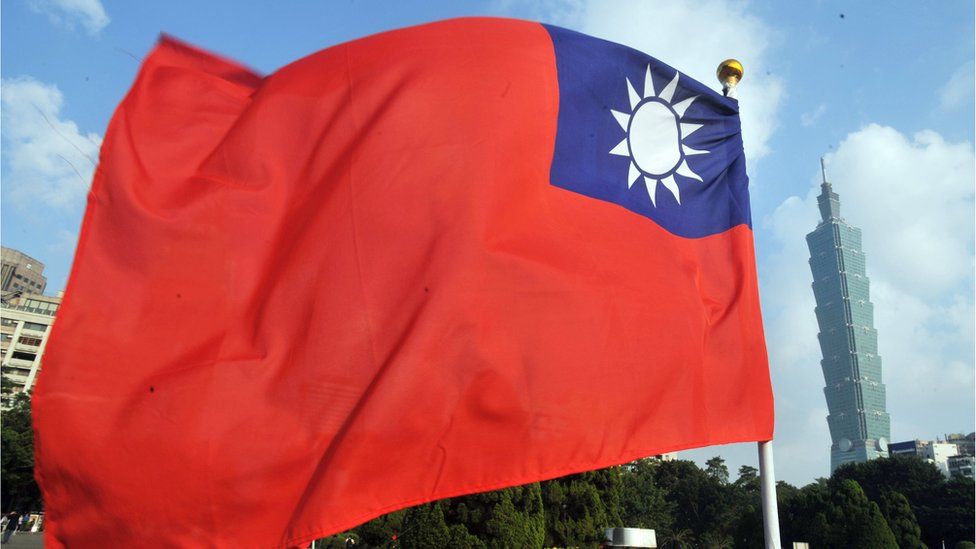
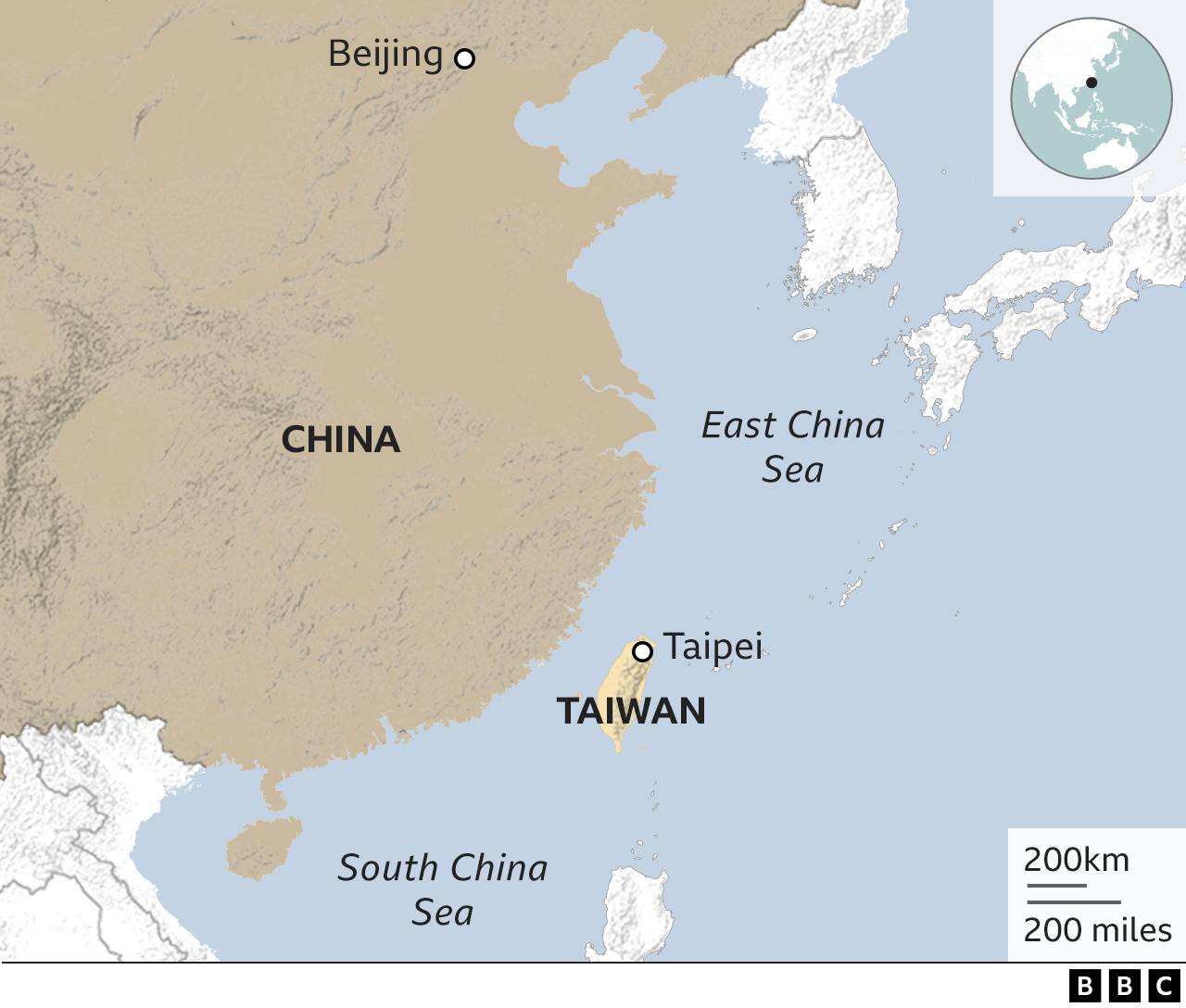
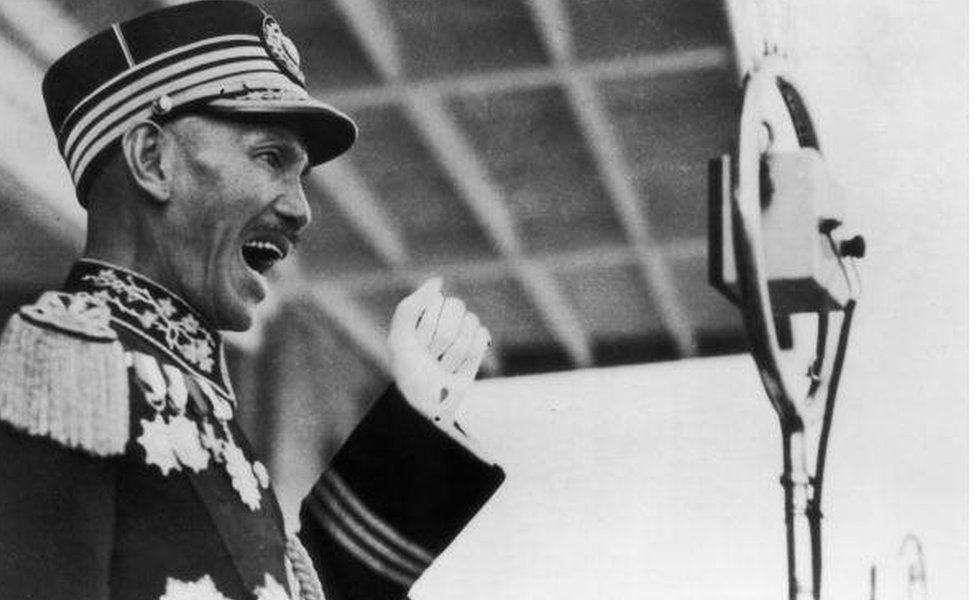
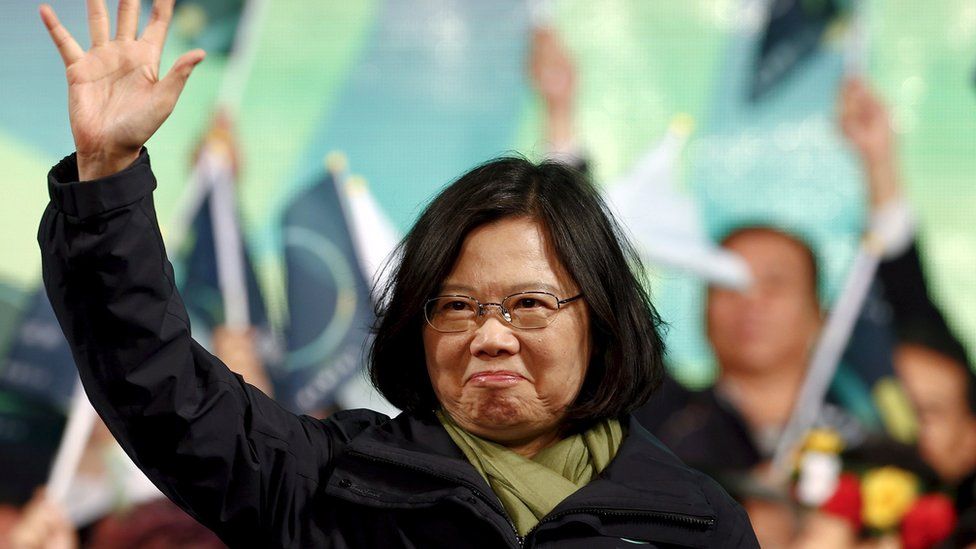
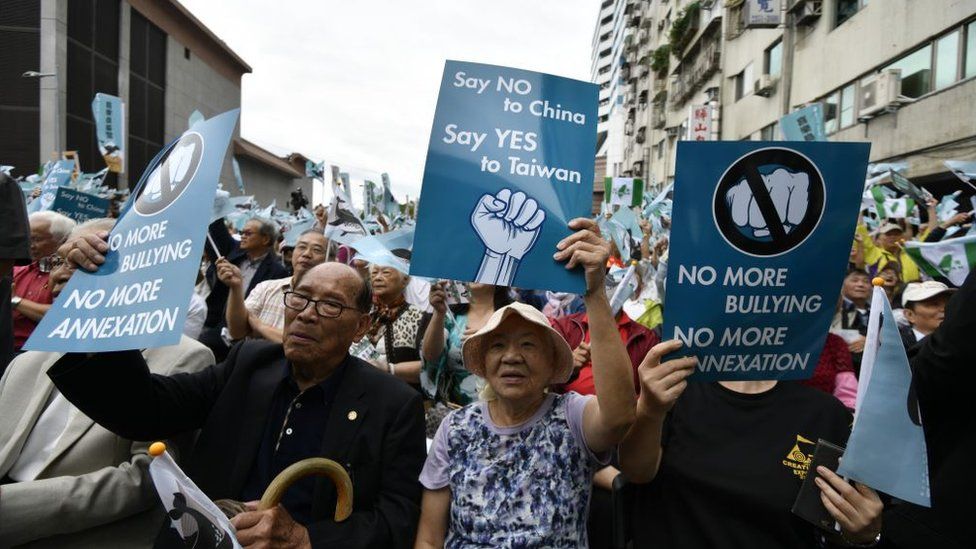


No comments
Share your thoughts! Tell us your name and class for a gift (: